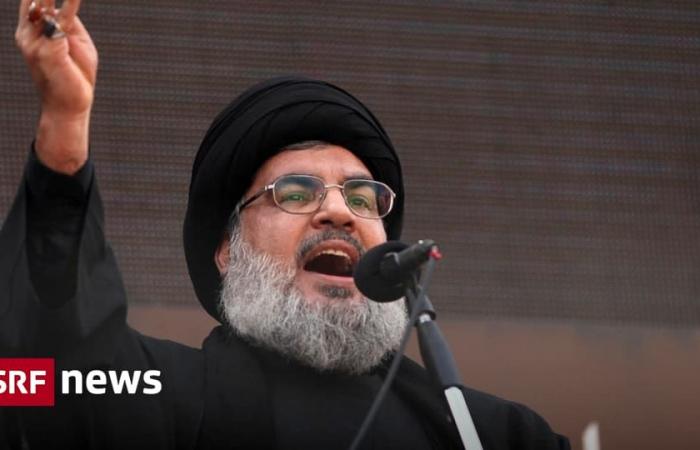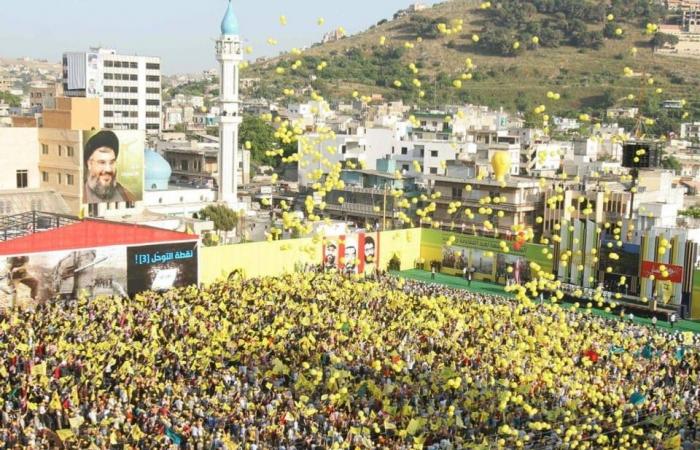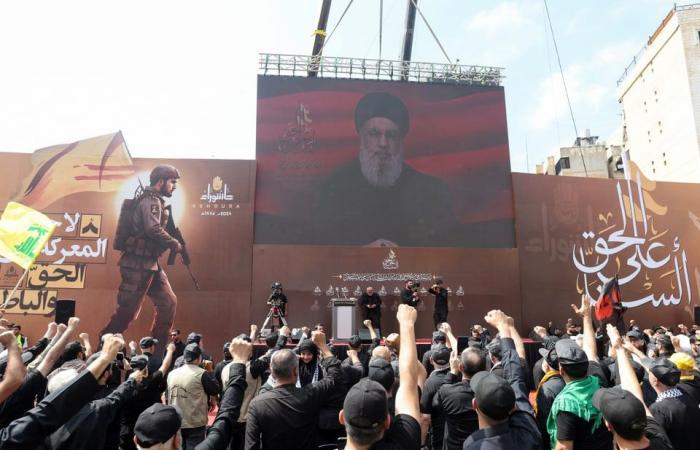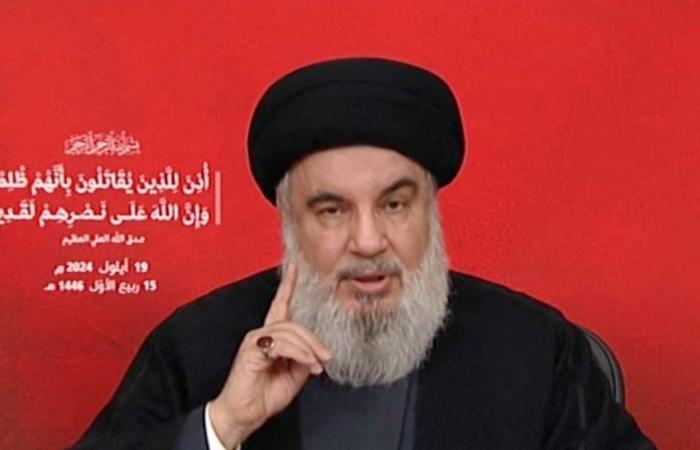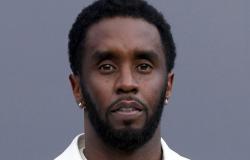Childhood and youth
Nasrallah was born in 1960 in a poor area east of the Lebanese capital, Beirut. When the civil war began in Lebanon, his family fled to the south of the country. In 1976 he set off for religious studies in the Iraqi Shiite stronghold of Najaf. However, just two years later, Nasrallah was expelled from the secular Baath Party under then-ruler Saddam Hussein because of his opposition activities.
Nasrallah speaking in Beirut in 1992.
Reuters/Jamal Saidi
Rise in Hezbollah
With the Israeli invasion of Lebanon in 1982, Hezbollah was formed, which Nasrallah joined. The group was supported both politically and militarily by Iran. The civil war that continues to shape Lebanon today lasted until the early 1990s. Hezbollah was responsible for devastating attacks and kidnappings during this time. In 1992, Nasrallah finally became the organization’s secretary general.
Hezbollah: party and terrorist organization
Open the box
Box zuklappen
Keystone/AP/HASSAN AMMAR
Since the first election after the end of the civil war in 1992, Hezbollah has also been represented in the Lebanese parliament. It is committed to charity, but also has a military wing that, according to estimates, includes tens of thousands of fighters. This is classified as a terrorist organization by the European Union.
Nasrallah publicly campaigned primarily against the social and political marginalization of Shiites. His supporters in the Middle East saw the influential secretary general as a spiritual and political mentor. However, in the recent armed conflicts with arch-enemy Israel, Nasrallah appeared increasingly weakened. Israel’s intelligence operations and bombings in Lebanon, less than a year after the Gaza war broke out, dealt the organization severe blows.
Celebration in front of Nasrallah’s portrait: Thousands of Hezbollah supporters celebrate the liberation of southern Lebanon in 2009.
Reuters/Kamel Jaber
Political influence in Lebanon
In the shadow of the economic crisis and military conflicts with the neighboring country and arch-enemy Israel, Nasrallah steadily expanded Hezbollah’s political influence in multi-religious Lebanon. During his time in office, Nasrallah forged alliances with politicians from different camps, including former Christian President Michel Aoun, in order to expand his influence.
For a long time he was held in high regard in the Shiite and Arab worlds, but his popularity declined in the wake of military conflicts. Many Lebanese were horrified by the allegations that Hezbollah under Nasrallah had killed the former hopeful and Prime Minister Rafik Hariri.
Hours of speeches
Open the box
Box zuklappen
Nasrallah speaking in a Beirut suburb in 2013.
Getty Images/Anadolu
Hassan Nasrallah’s tiresome speeches were legendary. The head of the Lebanese Hezbollah often gave speeches that lasted hours. He always wore a traditional Shiite robe and black turban. As a loyal ally of Tehran, the politician and cleric took office as head of the Islamist “Party of God” in his early 30s.
Like politicians from other camps, Nasrallah had no solutions to the country’s social and financial problems until his death.
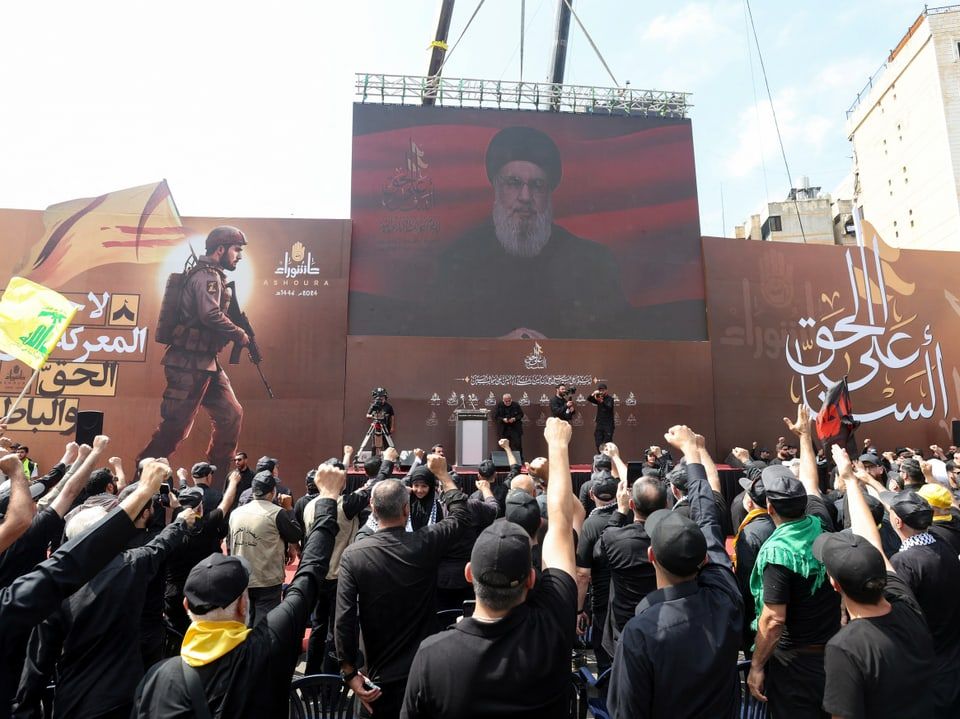
Security precautions: Nasrallah gave speeches in a secret location. These were then presented to supporters on large screens.
Reuters/Aziz Taher
War and peace with the neighbor
The fragile peace with neighboring Israel was broken several times under Nasrallah. In 1997, his eldest son died in armed fighting; the loss and “martyrdom” earned Nasrallah great respect within the movement. A prisoner swap with Israel in 2004, carried out with German mediation, also contributed to his reputation. In the 2006 Lebanon War, Hezbollah finally revealed its Iranian support with massive rocket attacks.
For years thereafter, Hezbollah under Nasrallah controlled large parts of southern Lebanon, the Bekaa Valley in the northeast and suburbs of the capital Beirut. The UN observation mission Unifil was monitoring the situation on the border with Israel.
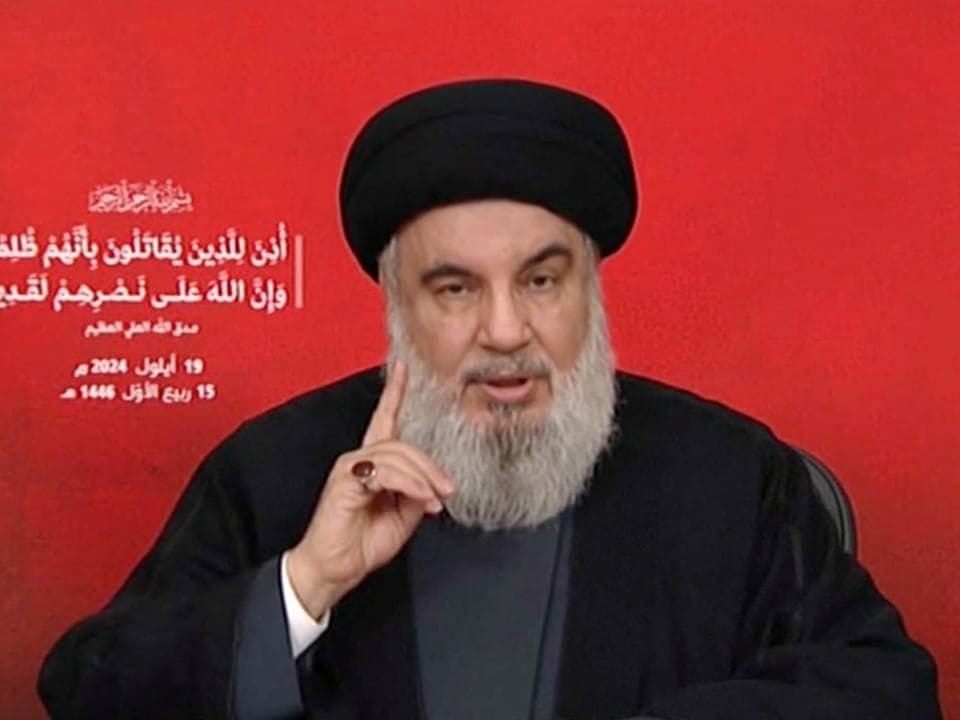
Nasrallah’s last speech to the people after Israel’s pager attacks in Beirut.
Reuters/Al-Manar TV
After the terrorist attack on Israel by the Islamist Hamas on October 7 last year, Hezbollah said it supported the terrorist organization from the Gaza Strip for humanitarian and religious reasons. As a result of the shelling from Lebanon, more than 60,000 Israelis had to flee the border area. Israel recently presented the return of these people as a war aim.

